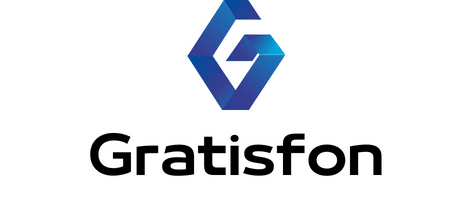What’s the Role of Team-Building Activities in Enhancing Cohesion in E-Sports Teams?

In the fast-paced world of E-Sports, the pressure for teams to perform at their best is ever-present. The ability of a team to work together seamlessly and cohesively can be the difference between victory and defeat. This necessity for unity has led to a growing emphasis on team-building activities. But what exactly is their role in enhancing cohesion in E-Sports teams? This article will delve into the function of these activities, their impact on communication, the fostering of trust, improving team dynamics, and how they can improve performance under pressure.
Enhancing Communication Through Team-Building Activities
One of the most crucial elements of a successful E-Sports team is effective communication. Players must convey strategic information quickly and clearly, with no room for misunderstandings that could cost the game. In this respect, team-building activities can play a vital role.
Dans le meme genre : What Is the Effect of Plyometric Training on Bone Density in Female Athletes?
Initiating team-building exercises that focus on communication skills can help players understand each other’s strengths and weaknesses. For example, activities that require players to solve problems collaboratively can reveal who is best at analytical thinking, who has a knack for creative solutions, and who can communicate most effectively under pressure. This understanding allows the team to assign roles more effectively and streamline their in-game communications.
Additionally, these activities can also help to break down barriers and encourage open communication beyond the game. This leads to a stronger bond between teammates, fostering a sense of unity and camaraderie that can translate into enhanced in-game performance.
A lire également : How Can Periodontal Health Be Maintained in Athletes to Avoid Impact on Performance?
Fostering Trust with Team-Building Activities
Trust is a vital component of any team’s success, and this is especially true for E-Sports. Players must trust in each other’s abilities, decision-making skills, and commitment to the team. In essence, they must believe that their teammates will perform their roles to the best of their abilities.
Team-building activities can serve as a powerful tool to cultivate this trust. By working together in a non-competitive, relaxed environment, players can build mutual respect and understanding. They can see first-hand that their teammates are reliable and committed, reinforcing their confidence in each other’s abilities.
Trust-building exercises can also address any underlying issues within the team. If there are doubts or uncertainties, team-building activities can bring these to the surface and allow the team to address them constructively. This proactive approach helps to prevent minor issues from escalating into major problems that could disrupt team cohesion.
Improving Team Dynamics with Team-Building Activities
Another essential aspect of team cohesion in E-Sports is team dynamics. These refer to the interpersonal relationships and the overall atmosphere within the team. Positive team dynamics can boost morale and motivation, while negative dynamics can lead to conflict and poor performance.
Team-building activities can significantly influence team dynamics. They provide opportunities for team members to interact in different contexts, promoting understanding and empathy. They can also help to identify and address any negative dynamics, such as cliques or power imbalances.
Moreover, team-building activities can also introduce an element of fun into the team’s routine. This can be a great way to relieve stress and prevent burnout, improving the overall team environment and contributing to better performance.
Enhancing Performance Under Pressure
The world of E-Sports is highly competitive and can place immense pressure on players. This pressure can be particularly intense during high-stakes tournaments, where the slightest mistake can have significant consequences.
Team-building activities can help teams to perform better under this pressure. By placing players in challenging situations in a controlled environment, they can learn how to stay calm and focused in the face of adversity. They also learn how to support each other during stressful moments, fostering a sense of unity that can carry them through the toughest of games.
Furthermore, team-building activities can also build resilience and adaptability. By introducing unexpected challenges or changing rules, players can learn to adapt quickly and maintain their performance despite changing circumstances. This can be incredibly valuable in E-Sports, where the ability to respond rapidly to new situations can mean the difference between victory and defeat.
In conclusion, team-building activities have a number of roles in enhancing cohesion in E-Sports teams. They can improve communication, build trust, enhance team dynamics, and help teams perform better under pressure. With the right activities, any E-Sports team can enhance their cohesion and set themselves up for success.
The Impact of Team-Building Activities on E-Sports Performance
The ultimate goal of fostering improved communication, trust, and team dynamics is to enhance the overall performance of the E-Sports team. Team-building activities are essential tools to achieve this goal. Engaging in these activities allows players to gain a deeper understanding of their teammates’ strengths and weaknesses. This knowledge can be leveraged to optimize team strategies during games, ensuring that each team member is in a position where they can make the most significant impact.
Furthermore, these activities help in building resilience among team members. Often, these exercises introduce elements of stress or adversity, simulating the pressures that players may experience during a high-stakes match. By experiencing and overcoming these challenges together outside of the gaming environment, players can build their resilience and learn how to effectively handle stress. The increased confidence and resilience gained from these activities can directly translate into improved game performance, as players feel better prepared to tackle high-pressure situations.
Moreover, team-building activities can also help foster an environment where continuous learning and improvement are valued. Through constructive feedback during these exercises, players can learn to take criticism positively and use it to improve their skills and strategies. This culture of continuous learning can drive the team towards constant improvement, leading to consistent high performance.
Conclusion: The Power of Team-Building Activities in E-Sports Teams
In summary, the role of team-building activities in enhancing cohesion in E-Sports teams is multifaceted and significant. These activities are vital for improving communication within the team, fostering trust among teammates, enhancing team dynamics, and ultimately, boosting the team’s performance.
Effective communication established through these activities helps streamline strategies and reduce misunderstandings during games. Trust, cultivated in a relaxed and non-competitive environment, assures players of their teammates’ reliability and commitment. Positive team dynamics, fostered through these exercises, contribute to a supportive and motivating team atmosphere. Finally, the resilience and adaptability gained through these activities prepare the team to face high-pressure situations and rapidly changing circumstances in the competitive world of E-Sports.
Therefore, with the right set of team-building activities, E-Sports teams can significantly enhance their cohesion, leading to improved performance and increased chances of success in this highly competitive field. As E-Sports continue to grow in popularity and competitive intensity, the importance of team building activities as tools for success cannot be overemphasized. They are not just an added extra; they are a crucial component of a winning strategy in E-Sports.
